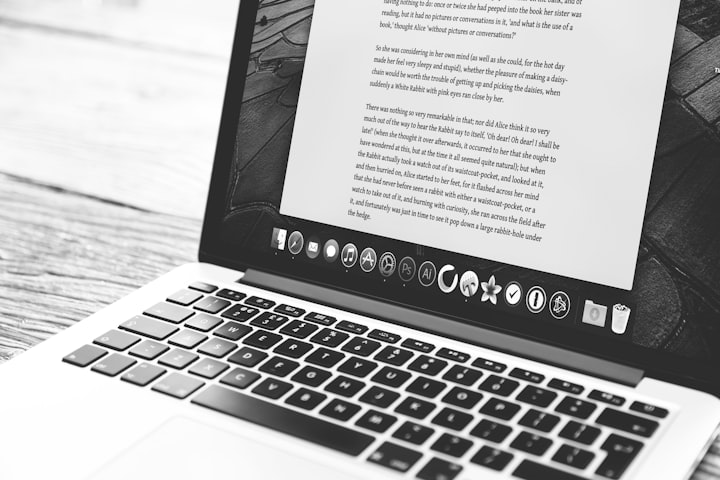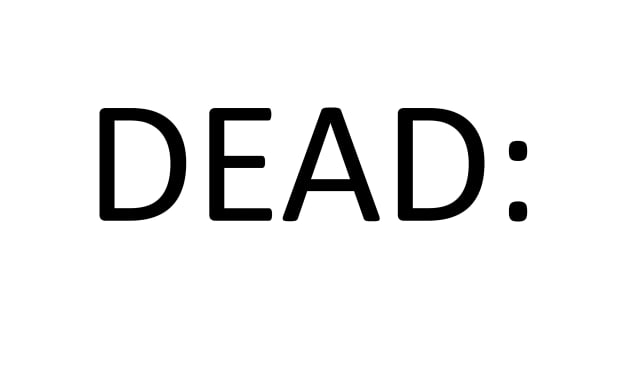Making a better writer
A "new-to-me" writing hack

Writing has been my greatest passion since I was old enough to pick up a pencil and form words, but only then because it usurped my earlier passion of telling myself a good story. Once I learned to write, I could share my stories with someone more than an imaginary audience.
I’ve written for the Army. I’ve written for newspapers and magazines. I’ve even written for radio. But in every case where I have written for someone else, there has been a slew of editors and proofreaders to clean up any errors. I write fast and I write conversationally. Though, in my opinion, that makes for a good read, it seldom allows for the best structure. I’ve never been able to edit my own work, and I don’t think I am alone in that handicap. I can read and read and read again every chapter of every story I have ever written and still overlook the most mundane technical errors. Time away from the work does increase the likelihood that I will find more of my mistakes, but since I started writing for publication, I’m not amenable to putting a story on ice for several months until I can look at it with fresh eyes. It has to go out now!
I’m sure there are some phenomenal, perfect pitch writers out there; I am not one of them and I am not sorry for it. What I learn from my mistakes makes me a better writer, but when the story is pouring out my fingers, I’ll not interrupt the thought to make sure the grammar, spelling or word usage is perfect. That’s why I hire an editor.
Maybe the day will come that I can write flawlessly. Maybe one day my fingers will perfectly translate the thought from my mind to exacting context… but that is not now. Now I struggle. My stories are no worse for it, but I am excited to share a newly discovered hack that I’m sure will make me a better writer, and hopefully a few others as well. It will not eliminate my need for an editor at this time, but it will make her life easier and she can enjoy the story a little more without the painful attention to every little detail.
This writing hack is a 2-step process requiring a digital word processor (that’s old speak for Word, Pages or some other application since Word Perfect was booted from the peak decades ago).
Step 1: Know your tendencies. Do you more often type “it’s” in place of “its” or the other way around? Is it confusing “lie” with “lay?” Is it “here” for “hear,” “where” for “wear,” “there” for “their,” or etc? For me, the biggest bane to my talent is the garments we where… I mean wear. Seriously, I cannot type “clothes” during the course of a story flow if my life depended upon it. It is as if my mind and fingers have come to the mutual understanding that they will just drop that superfluous “e” in the interest of time. I mean, clothes are made from cloths, right? How can that be wrong?
To make matters worse, my first novel, Archibald Lindsey’s Study of Women, is a 108,000-word, adult comedy about a young man on his death bed – I mean the day before his wedding – commiserating about all of his lost loves, crushes or infatuations starting with his very first “show me yours, I’ll show you mine,” incident as a child. The word “clothes” is prevalent throughout the book. In fact, I’m fairly certain it is mentioned at least once in all 47 chapters. I typed it wrong EVERY SINGLE time and though my editor did a great job, even she didn’t catch them all. Thankfully, Kindle Create has the same functionality as most word processors that I will discuss in Step 2.
Step 2: Do a word search for known errors. I know it sounds paradoxical, but it isn’t. Hence, knowing your tendencies in Step 1. It has to be done methodically though. If you have a tendency to use “it’s” the contraction for “it is” in place of the possessive “its,” then you will search for “it’s” not “its” because there is a greater likelihood that “it’s” is used contextually wrong. I particularly love the possibilities when searching the word “here.” When searching for “here,” you can effectively find and correct at least five common errors. Most word search functions look for the order of letters, not the specific word. When searching for “here” you will find every incident of “here,” “there,” and “where” among others, but among all three of those words you can verify that you did not intend “hear”, “their,” “they’re,” “wear,” or “ware.”
I’m sure there are plenty of experienced writers that will read this and say, “duh,” but this is a great discovery for me and I can’t be the only writer that hasn’t already thought of this, so I’m inclined to share. As I experiment with this functionality more, I’m sure I will discover more common errors and add those to my search as well.
As I mentioned before, this writing hack does not eliminate the need for an editor and I almost never rely on the grammar correction of the typical word processing software, but it will certainly eliminate many common mistakes, and as I become more aware of my tendencies for error, I will be less likely to repeat them in the future. I will wean from the digital teat and be a better writer for it.
About the Creator
The Bantering Welshman
M.S. Humphreys is The Bantering Welshman, an East Tennessee native, author, journalist, storyteller, marketing specialist, husband and step father. https://www.instagram.com/thebanteringwelshman/ and http://www.banteringwelshman.com






Comments
There are no comments for this story
Be the first to respond and start the conversation.